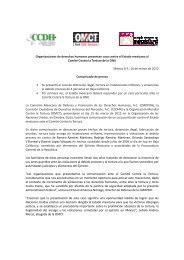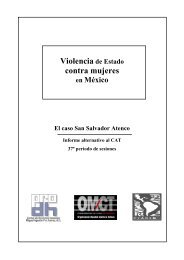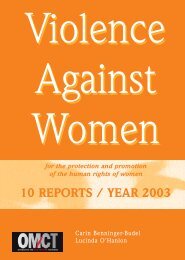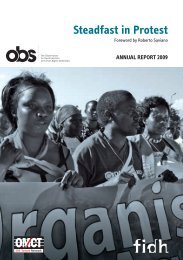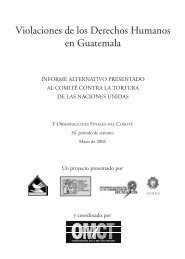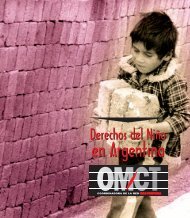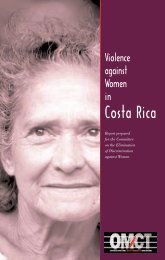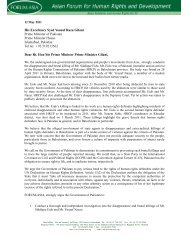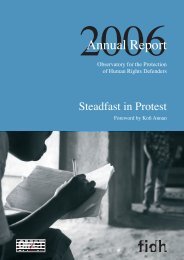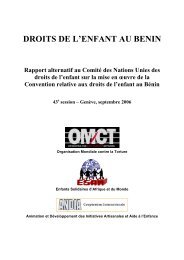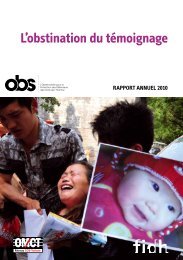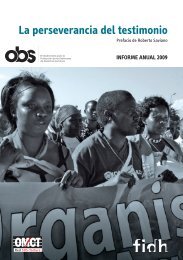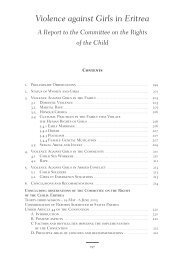eng - World Organisation Against Torture
eng - World Organisation Against Torture
eng - World Organisation Against Torture
Create successful ePaper yourself
Turn your PDF publications into a flip-book with our unique Google optimized e-Paper software.
the laws. Delays of months between hearingsremain the rule rather than the exception,and these delays may have serious repercussionson the penalties imposable underlaw for children in conflict with the law.Delays and constant postponements seem tobe accepted as inherent and unavoidable bythose involved in the justice system.Children accused of having committed acrime, like everyone else, are supposed toenjoy the presumption of innocence, as providedby Article 40(b) of the CRC, yet manyfind themselves languishing in jail prior totheir trial for l<strong>eng</strong>thy periods of time. Of thechildren located in the various jails, not oneis actually serving a sentence after trial andconviction in court. All of them are awaitingthe disposition of their cases. In practice, itseems that prosecutors, complainants andeven judges view the pre-judgment period –which can amount to years in some cases -as adequate punishment for the crime thatwas allegedly committed.The lack of a sufficient number of court socialworkers means that writing case studyreports and submitting them to the judgeswith a recommendation for transfer of custodytakes several weeks alone. There isonly one court social worker for dozens ofcases. NGOs are also assisting in the preparationof the reports, but the current staffingis far from adequate to deal with the numberof children in conflict with the law cases. Thechildren suffer weeks and months in prisonbefore custody is approved.The question of persons who reach the age ofmajority while awaiting trialIn cases where the accused was a child at thetime the crime had been committed, but notover 18 at the time of conviction, the penaltiesprescribed by the RPC are applicable.He should therefore not receive the fullpenalty that an adult offender would receive.The law recognises the age of the accused atthe time the offence was committed as a mitigatingcircumstance.Presidential Decree (PD) No. 603 also appliesto those who are sentenced before theyturn 18. Article 192 of PD No. 603 statesthat if the court finds that the child has committedthe acts charged against him, the prescribedpenalties would be imposed.However, the court may decide - as a matterof upholding the best interest of the publicand the child in question – to suspend allfurther proceedings and commit the child,37



